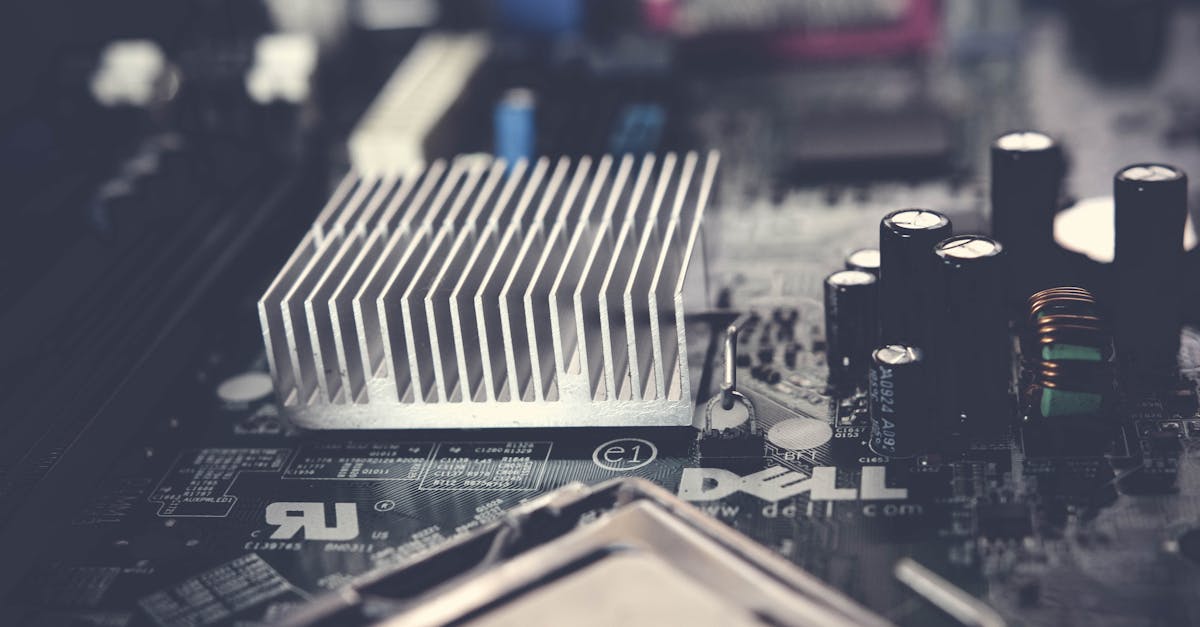Introduction: The Battle of the Mid-Range Giants
When it comes to choosing a processor for your next PC build, the debate often narrows down to two formidable contenders: Intel’s Core i5 and AMD’s Ryzen 5. This rivalry isn’t just about brand loyalty; it’s a technical showdown that can significantly impact your computing experience. If you’re like me, you’ve probably pondered over which processor offers the best bang for your buck. Let me tell you, the answer isn’t as straightforward as it seems.
Interestingly enough, both Intel and AMD have been locked in a fierce competition for years, each striving to outdo the other with faster, more efficient, and more affordable processors. But what makes this battle especially intriguing is the fact that both the Intel i5 and Ryzen 5 series are targeted at the same audience: mainstream users who need high performance without breaking the bank.
So, which one should you choose? In this comprehensive guide, we’ll delve into the nitty-gritty details, comparing performance, power consumption, price, and more. By the end, you’ll have a crystal-clear understanding of which processor reigns supreme.
Performance: Speed and Efficiency Unleashed
When it comes to raw performance, both Intel i5 and Ryzen 5 have their strengths and weaknesses. But one thing I’ve learned is that benchmarks and real-world performance can sometimes tell different stories.
Clock Speeds and Cores
-
Intel Core i5: Typically, Intel’s i5 processors come with 4 to 6 cores and 8 to 12 threads, offering clock speeds ranging from 2.9 GHz to 4.8 GHz. Intel has always been known for its high single-core performance, which is particularly beneficial for tasks like gaming and single-threaded applications.
-
AMD Ryzen 5: On the other hand, Ryzen 5 processors generally feature 6 to 8 cores and 12 to 16 threads, with clock speeds between 3.2 GHz and 4.6 GHz. AMD has made significant strides in multi-core performance, making Ryzen 5 a powerhouse for multi-threaded applications like video editing and 3D rendering.
Benchmarks and Real-World Tests
You might have experienced this: benchmarks can be a bit deceiving. While synthetic benchmarks like Cinebench and Geekbench provide a general idea of performance, real-world tests often paint a more accurate picture.
-
Gaming: If you’re a gamer, the Intel Core i5 often edges out Ryzen 5 in terms of frames per second (FPS). Games like “Cyberpunk 2077” and “Call of Duty: Warzone” tend to perform slightly better on Intel processors due to their superior single-core performance.
-
Productivity: For tasks like video editing, 3D rendering, and software development, Ryzen 5 generally takes the lead. The additional cores and threads make a noticeable difference in rendering times and multitasking capabilities.
Power Consumption and Thermal Efficiency: Keeping Cool Under Pressure
If there’s something to be said for efficiency, both Intel and AMD have their own approaches to managing power and heat.
TDP and Power Draw
-
Intel Core i5: Intel’s processors usually have a lower Thermal Design Power (TDP), ranging from 65W to 125W. This means they generally consume less power and produce less heat, making them ideal for compact builds and systems where cooling solutions are limited.
-
AMD Ryzen 5: Ryzen 5 processors typically have a TDP between 65W and 105W. While AMD has made significant improvements in power efficiency with its latest architectures, Ryzen processors tend to run hotter, requiring more robust cooling solutions.
Thermal Management
You won’t believe how much thermal management can affect performance. Intel’s processors are generally better at maintaining consistent performance under heavy loads, thanks to their efficient thermal management. Ryzen 5, however, can throttle performance if not adequately cooled, although this is less of an issue with the latest Zen 3 architecture.
Price and Value: Getting the Most Bang for Your Buck
If you ask me, price-to-performance ratio is one of the most critical factors when choosing a processor. Both Intel and AMD offer competitive pricing, but there are nuances to consider.
Initial Cost vs. Long-Term Value
-
Intel Core i5: Intel’s processors are often priced slightly higher than their AMD counterparts. However, they come with integrated graphics (Intel UHD Graphics), which can save you money if you don’t plan on using a dedicated GPU.
-
AMD Ryzen 5: Ryzen 5 processors are generally more affordable and offer better multi-core performance. However, most Ryzen 5 CPUs do not come with integrated graphics, meaning you’ll need to invest in a separate GPU, which can add to the overall cost.
Upgradability and Longevity
I’ve noticed that AMD has a more future-proof platform. The AM4 socket used by Ryzen processors has been around for several generations, allowing for easier upgrades. Intel, on the other hand, frequently changes its socket design, which can limit upgrade options.
User Experience: Beyond the Specs
Ever wonder why some people swear by Intel while others are die-hard AMD fans? The user experience goes beyond just benchmarks and specifications.
Software and Driver Support
-
Intel Core i5: Intel has a long history of excellent software and driver support. Their processors are generally more stable and less prone to compatibility issues, making them a safer choice for users who prioritize reliability.
-
AMD Ryzen 5: AMD has made significant improvements in this area, but there are still occasional hiccups with driver updates and software compatibility. However, the Ryzen Master software offers advanced tuning options, giving enthusiasts more control over their system.
Community and Ecosystem
If you’ve ever browsed through tech forums, you’ll find passionate communities for both Intel and AMD. However, AMD’s Ryzen series has garnered a particularly enthusiastic following, thanks to its excellent price-to-performance ratio and upgradability.
The Final Verdict: Which Processor Should You Choose?
As someone who has spent countless hours comparing these two processors, I can tell you that the choice ultimately depends on your specific needs and preferences.
For Gamers
If gaming is your primary focus, the Intel Core i5 is generally the better choice. Its superior single-core performance translates to higher FPS in most games, making it the go-to option for gamers.
For Content Creators and Multitaskers
If you’re into video editing, 3D rendering, or any other multi-threaded applications, the AMD Ryzen 5 is the clear winner. Its additional cores and threads offer better performance in these tasks, making it a more versatile option.
For Budget-Conscious Users
If you’re looking to get the most value for your money, AMD Ryzen 5 offers a better price-to-performance ratio. However, keep in mind the additional cost of a dedicated GPU if you go this route.
For Future-Proofing
If upgradability is a priority, AMD’s AM4 socket offers more flexibility for future upgrades. This makes Ryzen 5 a more future-proof choice, especially if you plan to upgrade your system down the line.
Making the Choice: What’s Next?
It’s safe to say that both Intel Core i5 and AMD Ryzen 5 are excellent processors, each with their own strengths and weaknesses. The thing is, the best choice for you will depend on your specific needs, budget, and long-term plans.
If you’re still on the fence, consider your primary use case and what features matter most to you. Do you prioritize gaming performance, multi-core capabilities, or future upgradability? Once you’ve identified your priorities, the choice becomes much clearer.
To put it simply, there’s no one-size-fits-all answer. Both Intel and AMD offer compelling options that cater to different needs and preferences. So, take your time, do your research, and choose the processor that best aligns with your goals.
In my opinion, the ultimate showdown between Intel i5 and Ryzen 5 is a testament to how far technology has come. Whether you choose Intel or AMD, you’re getting a powerful processor that can handle a wide range of tasks with ease. And that, my friends, is something we can all appreciate.
Happy computing! 🎮💻









